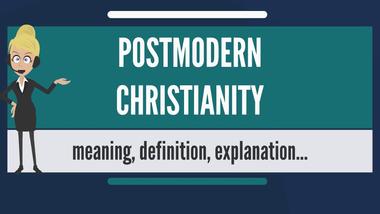
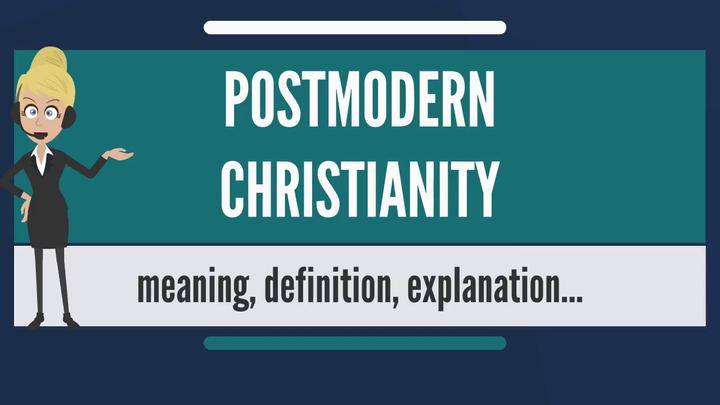
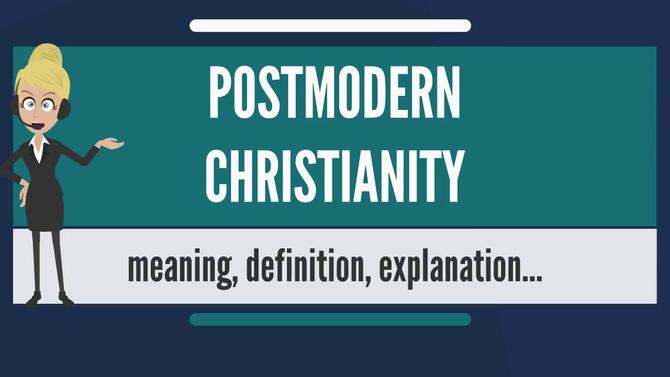
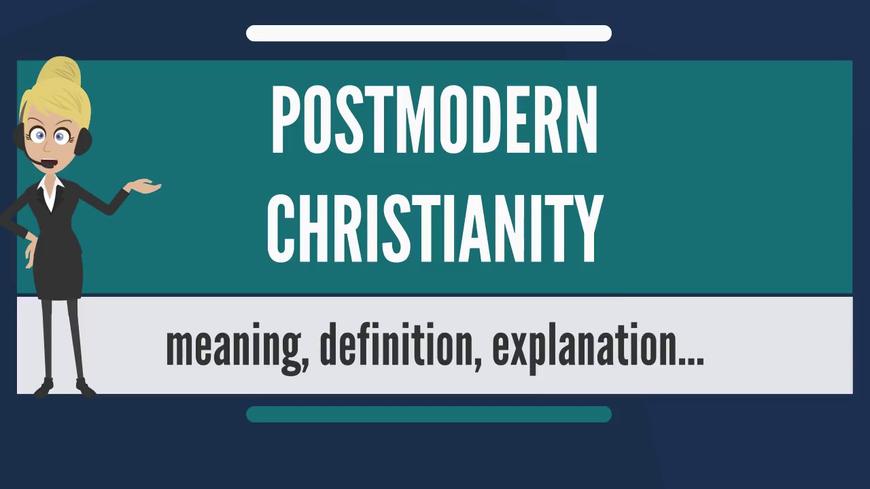
Introduction
In the social sphere, postmodernism corresponds to the society of consumption and mass media, the main characteristics of which look amorphous, blurred, and indefinite. It does not have a clearly defined socio-class structure. The level of consumption is the main criterion of division into social strata. It is a society of universal conformity and compromise. It is increasingly difficult to apply the concept of “people,” since the latter is increasingly becoming a faceless “electorate,” into an amorphous mass of “consumers” and “customers.” The Christian worldview, in turn, is theocentric. In the center of Christianity is God, which is the unifying principle of Christian culture. While the religion of postmodernism aimed at the fact that a person can choose what to believe in, in Christianity people believe in God. Postmodern religion shows people that everything should be perceived positively and that there are no ideologies, Christianity, on the contrary, teaches people to believe in God and honor him, which makes Christianity more meaningful, and religion that will not face with anarchy.
Summary of the Worldview. The adherent of every faith has its customs and beliefs. The postmodern man refuses self-restraint and all austerity that Protestant ethics once revered. Postmodernists do not accept dictatorship and always stand for tolerance. They are inclined to live one day, not thinking about tomorrow and with no plans for the far future. The main incentive for it is professional and financial success. And this success should come not at the end of life, but as soon as possible. For this, a postmodern person is ready to give up any principles. The evolution that has taken place in this plan can be illustrated as follows. M. Luther said in his time that on that people can stand and one cannot do otherwise. That means that postmodern people could do whatever they wanted and it would be right anyway because there is no ideologies and laws for postmodern people. The worldview of a postmodern man devoid of sufficiently strong support, because all forms of ideology look blurred and uncertain. They are as if amazed by the inner lack of will. This kind of ideology sometimes called “soft ideology,” which means gentle. It peacefully gets along that previously was considered incompatible. This situation largely due to the fact that the postmodern worldview lacks a completely stable internal core. In antiquity such was mythology, in the Middle Ages- religion, in the modern era- first philosophy, and then science. Postmodernism debunked the prestige, and authority of science but offered nothing in return, making it difficult for a person to orient oneself in the world. For a person in a postmodern religion, it is characteristic to combine several pictures of the world that do not embody the truth. That is, a person of postmodern religion believes either in everything or in nothing.
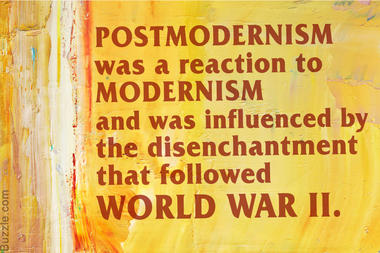
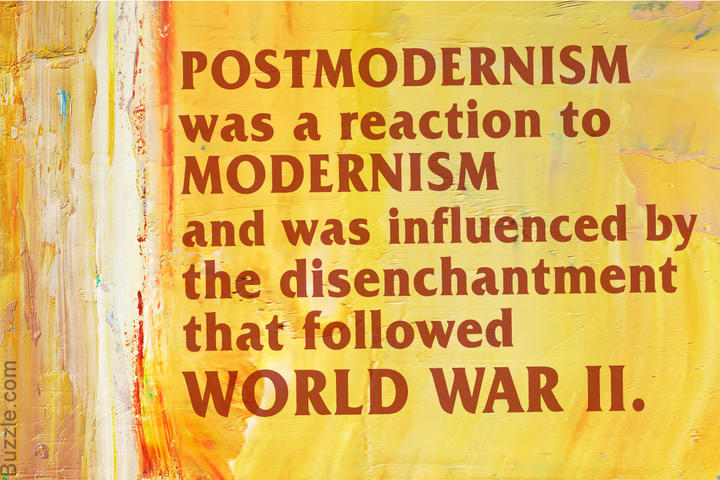
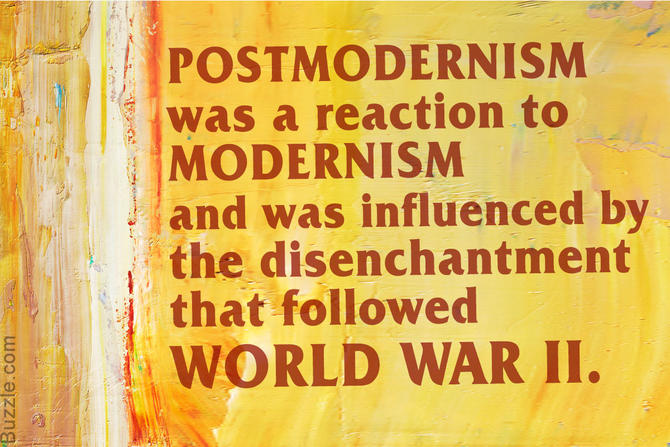
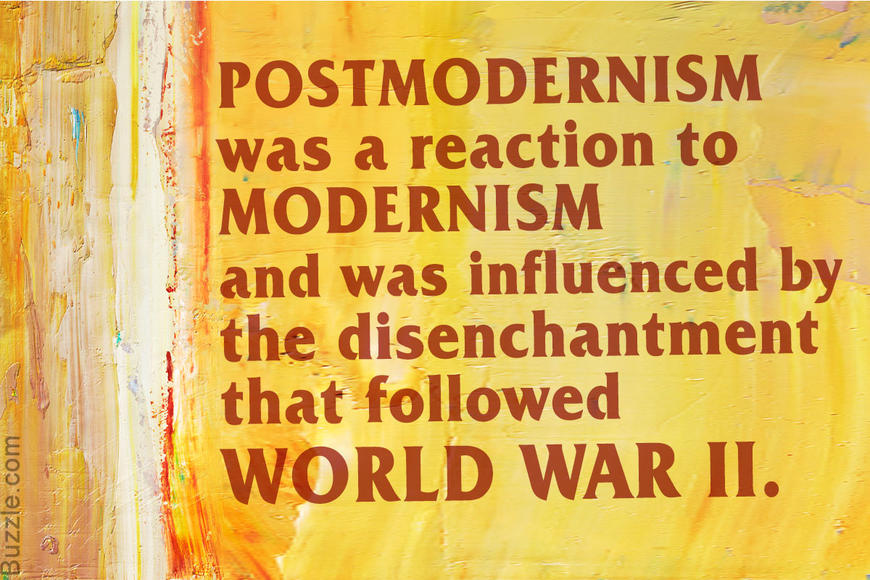
Evaluation of the Worldview
In general, the worldview of a postmodern person can be defined as neo-fatalism. Its peculiarity is that a person no longer perceives oneself as the master of one`s destiny, who relies on oneself in everything, owes everyone to oneself. However, even with it, it is difficult to apply the famous formula coming from the Renaissance that a man has made oneself. A man fully understands that too much in life depends on the game of chance, luck, and possibilities. One can no longer say that one started from scratch, and achieved everything oneself. Apparently, therefore, there was such a wide distribution of all sorts of lotteries. Postmodern society loses interest in goals- not only great and sublime but also more modest. The goal ceases to be an important value. As noted by philosophers, in modern days there is “hypertrophy of funds and atrophy of goals.” The reason for it is again the disappointment in ideals and values, in the disappearance of the future, which turned out to be stolen. All this leads to an increase in nihilism and cynicism. If Kant once created the “Critique of Pure Reason,” believing that the current cynicism caused by disappointment in the ideals of the Enlightenment. The cynicism of postmodernism is manifested in the rejection of many previous moral norms and values. Ethics in postmodern society gives a way to aesthetics that takes the form of hedonism, where the cult of sensual and physical pleasures comes to the forefront. Nevertheless, it should also to note that postmodern religious tendencies can lead to anarchy because of the complete rejection of any ideology.
Attached file: Postmodernism and Christianity.docx
Click download to get access to a full version of the paper
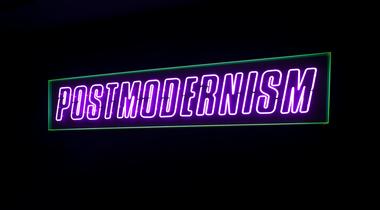
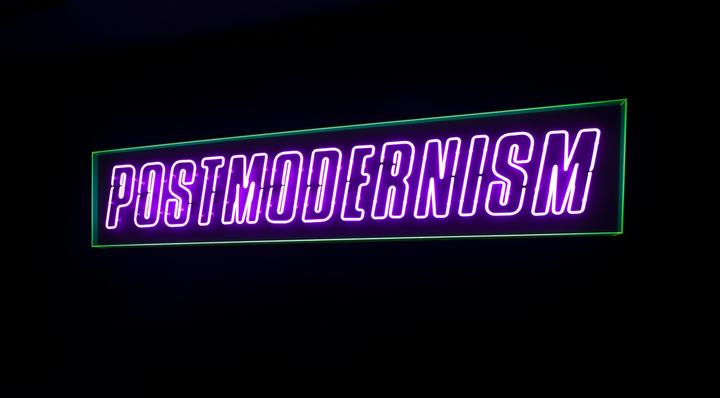
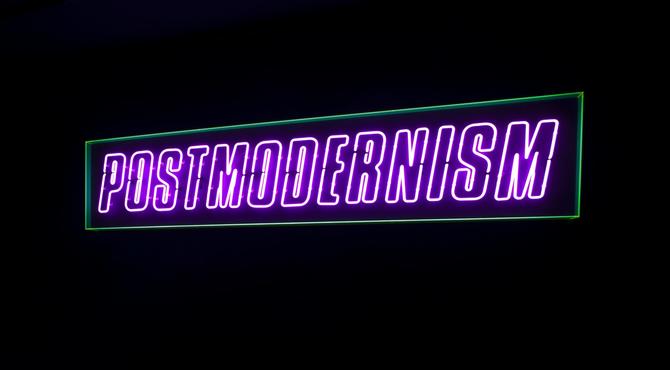
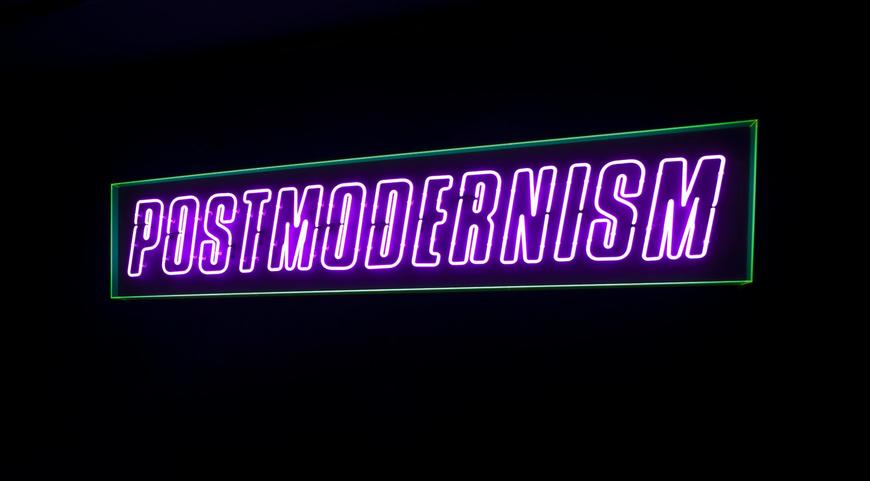
The attitude of postmodernism to religion does not always look consistent and definite. Sometimes there are accusations of Christianity for its complicity in affirming faith in reason, and progress. Some postmodernists call for a rejection of Christianity, and return to pre-Christian beliefs or to renounce faith altogether. However, it is also a positive outlook on religion. Postmodernism, in every possible way, strives to restore the old, traditional position of religion, to elevate its role and authority, to revive the religious roots of culture. The religion of modernism is also characterized by the fact that it calls to deny everything universal and to perceive everything positively. Postmodernism allows people to choose what to believe or not to believe; religion is based on human desires. Because of the complete rejection of ideology and dictatorship, a person exists without restrictions. So, the morality of postmodernism is a free choice of a person in what to believe or not to believe. The religious situation of postmodern characterized not only by the rise of alternative forms of religiosity and spirituality but also the activation of fundamentalism. Fundamentalism, with the conviction of its rightness, the inviolability of religious truths, and the desire to impose its beliefs on others, would seem to be the complete opposite the postmodern religiosity, and the postmodern worldview in general. The fundamentalism of the postmodern era retains its antimodern character. The weakening of the worldview foundations of classical modernism, together with the preservation of the socio-economic and political problems generated by modernization, strengthen the positions of fundamentalism. One can say that fundamentalism characterized by a double denial- both modernity and postmodernism, which did not affect the socio-economic foundation of modernity, and culturally develops some of the tendencies laid down in the modernist project. It would seem that the situation of postmodernity does not favor the flourishing of religion. Such characteristics of postmodernism as the rejection of metanarratives, criticism of authorities, piercing the culture of irony-all this can finally undermine the position of a religion that has survived the criticism of the Enlightenment, the disenchantment of the world, but still found its modest a niche in modern secular societies. However, reality shows the rise of religious activity in the postmodern situation, in which one can see one of the contradictions inherent in the epoch. Criticism has undermined the authority of science, and of knowing the reason in general. Postmodernism undermined the foundations of the ideological value-based legitimization of the modernist project. It can be said that postmodernism equalized religion in rights with a secular, and scientific worldview. If no worldview is, and it cannot be true, that is, to have relation to objective truth, then any worldviews are equally permissible. The problem of seeking truth is replaced by the problem of interpretation.




Evaluation of Christianity
Speaking of the Christian worldview as the only true opposition to the postmodern one, people should understand its basic principles, ideas, and concepts. To begin with, one should note that the central component of the Christian worldview is morality`s concept, which is fundamentally different from the basic ideologies of postmodernism. In the most concise form, Christian morality defined as a system of moral representations, concepts, norms and feelings and the corresponding behavior closely associated with the dogmas of the Christian faith. Christian morality expresses in unique ideas and concepts about the moral and immoral, in the aggregate of certain moral norms (for example, the commandments), in specific religious and moral feelings (Christian love, conscience, etc.). Also, there were certain willful qualities of the believing person (patience, obedience, etc.), as well as it expresses in systems of moral theology or theological ethics. As mentioned earlier, in postmodernism, a person has lost faith in God and relied only on oneself, own efforts and fate, so one`s moral consciousness was limited, blurred and vague. Christianity, by means of its most important weapon, the Holy Scripture, gives a man answers to all questions that disturb one’s soul, reveals and explains the essence of Christian teaching. It is important that Christianity does not deny logic as an important element of human worldview. Christians do not follow blindly written scriptures; they recognize some of the contradictions that are present in the Bible and, through internal logical thinking, find explanations for them. According to the Christian belief, God created people and endowed them with everything necessary to find happiness, love, inner peace, and gave them hope. Indeed, a logical sequence reflected in the texts of the Holy Scriptures, traced in it. However, the issue of coherence in Christianity is ambiguous. Christians believe it is undeniable that God is almighty and his son Jesus Christ existed and fulfilled an important mission of enlightenment on Earth. Nevertheless, numerous debates arose regarding the interpretation of certain affirmations of the Bible, in which ambiguity is manifested. According to the Christian worldview, intellectual and cultural fertility also associated with God`s acceptance. Unlike postmodernism, Christians honor Christ, and his qualities. That is, Christians do not accept an idea of anarchy as representatives of Postmodernism but honor order. For Christians, the question of coexistence with the modern principles of philosophy is also acute, they have to compare them with the norms of scripture, and because of the difference in perception, sometimes, there are ambiguous situations. However, as it stated earlier, there are answers to all questions in the Bible, the question is only in the correct interpretation; therefore, true Christians always find a way out of difficult situations and find a suitable solution to significant issues. Christianity based on the core system of creation, fall, and redemption that is why the question of its pureness is clear. It is also worth noting, Christianity is an ideology, reflecting the phenomena of social life in its way. Undoubtedly, creating its moral code, Christianity included some simple universal norms of morality to concepts. The simplest general requirements to the behavior of the individual in the collective, which reflected in the Old Testament ten-word, were developed by the experience of collective life long before they were included in the texts of the Hebrew Torah. Such practices as the prohibition of killing a kinsman or a tribesman, the prohibition of marriages within the tribe, arose in the bowels of the tribal system. Thus, society did not derive morality from the Bible, but conversely, the Bible borrowed some of them from the experience of the real public people`s life.




Defense of Christianity
Postmodernists insist that the truth is relative in defense of the principals of morality. They argue that the truth must be material, and recognize financial success, and convenience among the basic values. In contrast to them, Christians consider their religion as an embodiment of true humanity. They preachers especially emphasize the humane meaning of the gospel call “Love your neighbor as yourself.” Postmodernists often criticized this commandment as they claim it is subordinate to the first commandment of love to God. They believe that the precept of the first love for God becomes an obstacle to the moral improvement of people. It alienates people from each other, condemns them to loneliness and is able to make a fanatically believing person indifferent to other people. However, it is not true, Christian love God, in contrast, is a means of defense of objective truth, and moral values. Through love to God, love for his creations manifested equally; that is, primarily to a man. People often doubt the existence of God. However, true faith, supported by the provisions of Holy Scripture, largely proves His existence. Otherwise, how else can one explain the statement that a man was “made in the image of God”? (Gen. 1:27) The main proof of God`s existence in Christianity was and remains a man oneself, who met God in one`s heart. The proof of God`s existence and the spiritual world can also be a personal experience. Most people met in lives with “strange” manifestations of the divine and superhuman: both beneficial, divine, and evil, demonic. There is even a “transcendental” proof of the existence of God. It was partly discovered by Kant and one can represent in the following way: there is a world outside of space and time - the spiritual world, the world of intellect, thought and free will - which is proved by the presence in each person of thoughts that can relate to the past and the future, that is, to "travel" to the past and the future, and also to be immediately transferred to any point of space. Each of the people, having turned consciousness to the source of the origin of one`s thoughts, can easily notice that they appear as if from somewhere outside, something spiritual. Thus, human thought, allegedly born in the brain, is simultaneously inside and outside matter- it appears to be due to neurophysiological processes in the tissues of the brain, surrounded by the bones of the skull, but, at the same time, basically exists outside any matter, outside space and time. Due to this, a person clearly understands that one has a spiritual nature, which is fundamentally different from the physical world that surrounds him. From this, it follows that the other nature is Spirit gifted by God. It is also worth remembering the Proof of the existence of God “from the real to the absolute perfection” designed by Thomas Aquinas. According to it, there is a clearly observed gradation of perfection within different kinds of being in nature, which can only be understood if there is an absolutely perfect Being, that is, God.
Conclusion.
In conclusion, one should note once again: Postmodernism shows people that everything should be perceived positively and that there are no ideologies, and Christianity, on the contrary, teaches people to believe in God and honor him, which makes it more meaningful and trustworthy religion. In this work, the author considered and evaluated from the perspective of criteria described in the Groothuis’s text, the main principals of Postmodernism and Christianity. As a result of the research, it was established that the Christian worldview is better than the postmodern one, and some evidence of the existence of God were presented.